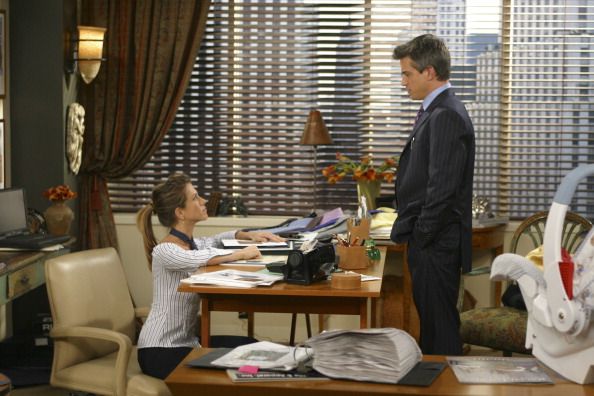Job hunting is tough. First, there's all the effort you have to put in to getting your CV spot on. Then if you're lucky enough to differentiate yourself from the (probably) hundreds of others applying for the same job and get called in for an interview, that's a whole other very daunting and intimidating ball park.
So, what would really help, is if we knew what mangers were looking for, or more importantly, what they're definitely NOT looking for and what will immediately get your application tossed in a metaphorical (we're hoping) bin.
Here's what a range of managers and hirers - who have provided tons of people with jobs in the past, and therefore rejected many - had to say when asked about the one thing that instantly makes them dismiss a candidate for a role:
If they sense you're not being fully honest
While this may seem a no-brainer, embellishing a CV and experience is something a lot of people do. However, if potential employers catch a whiff of this, chances are it won't end well.
As Alex Cheatle, the CEO of Ten Lifestyle Group plc- a lifestyle and travel platform which provides concierge services to the "world's mass affluent" - says:
“We like to ask interview questions that demand honesty to see what the reaction is. An example of this would be why someone’s moved around a lot, why they’ve changed career, have gaps in their CV or even whether there are any historic relationships that they’ve maintained. It’s a great way for us to see how honest they can be, but it also helps us to understand more about what kind of person they are. We also reference check to the nth degree to help us build a picture of the person beyond what we saw in a first interview.”
A complicated CV
As we mentioned earlier, CVs are tricky. You can spend so much time working on it that you actually end up complicating it. Jo Coombs, the CEO of customer agency Ogilvy One UK, says simplicity is key.
"In a complicated world I like to see simpler CVs. Don’t list everything you’ve ever done since you were four. And don’t use jargon or buzzwords. A CV that shows your ability to communicate effectively with ‘less’ being ‘more’ is much more powerful."
Similarly, Kate Thurlwell, chief talent officer at Exposure agency says keep your CV short:
"No novels, please! It might seem like common sense, but I’ve lost count of how many five-page CVs I’ve received and it’s an immediate turn off. Condensing your skills into one or two pages max shows not only your interest in the role, but that you understand what is required for the role. In this case, less is more."
Not researching the company
Managers that work for a company and therefore know a company inside-out, like you to have done your research. And, it's pretty obvious to them if you haven't. Clare Kemsley, the National Specialist Director at Hays recruitment, says:
"It isn’t easy to bluff your way through an interview without preparation – interviewers will know when you’ve failed to do your research! It’s there for all to see in answers that are not personalised or in the work examples you cite that aren’t 100 per cent relevant to the role, the organisation or its clients. Other tell-tale signs include asking a question you would already know the answer to if you’d looked into the organisation and team, not demonstrating how your skills could add value to the organisation, and not understanding how the role will help the organisation achieve its objectives.”
Having a problematic social media past
In this day and age, it's not unusual for recruiters to check out your social media to find out a bit more about an applicant. In fact, for some managers it's one of the first things they do. Liam Howley, the marketing director at musicMagpie, says:
"While social media can be great for boosting a candidate’s profile, it can also mean they are open to scrutiny from employers, and as you would expect, racist, sexist and homophobic comments are a definite no-go for us. Dodgy drinking photos can also play a part in whether the candidate gets an interview. These can be particularly career-damaging, especially when they are posting them on a regular basis. Bad mouthing ex-colleagues or bosses and even complaining about their current job on social media is also a negative sign, and would be something that would make us think twice about inviting the candidate for an interview.”
Bigging yourself up too much and taking credit for team's work
While you are supposed to be confident and sell yourself in an interview, trying to pass off someone else's achievement as your own isn't cool. Dee Clarke, head of graduate recruitment at Amazon, says:
"This comes across quite early on in our phone screening stage of the interview process, where we ask competency based questions and ask for graduates to give key examples of their achievements and failures. Successful candidates are always self-aware, humble, authentic, responsible and resilient."
Acting too casual in your covering letter
It's difficult to know where to draw the line between coming across friendly but professional. But you can let your personality shine in an interview and coming across too informal in your application can give managers the wrong idea. Jacqui Ripley, the Director of Brand Communications at Tangle Teezer, says starting your cover letter with "Hey" is a no no as are some other styles.
"Do not talk about yourself in the third person. I couldn’t quite believe it when the first paragraph started, ‘[Name] is a hard working, capable person….’ I thought it was a statement for a former employer. But no, she was inflating herself up as her alter ego."
Complaining about your last job
So, one of your main reasons for looking for a new job might be because you totally hated your old one. That's fine but moaning about your current or ex-managers in an interview does not bode well for what could be your next manager, for obvious reasons. Andy Sumner's, the Managing Director of Monster recruitment in UK and Ireland, says:
"Complaining about your last job can reflect badly on you. Even if true, it can lead the interviewer to question if you’re the type of person they want on their team. Instead, phrase any problems in your old workplace as challenges you overcame, and make sure the focus of your interview is the positive results you achieved."
Not asking any questions during your interview
Always prepare to ask questions at the end of an interview, that way you won't come unstuck when they do ask you. Which they pretty much always will. Mischa Joslin, the Managing Director of PR firm EdenCancan, says:
"If a candidate says no to questions, it’s a red flag. I always think, ‘This is the next step in your career and you don’t want to know anything about the company, the team, the culture, the clients, the training, the progression?’ Those who are serious and want to really excel at work come prepped with questions and are eager to discover more so they can also decide whether the role is right for them."
Not being yourself
Even though interviewers don't actually know you, they've met so many people and hired so many people that they can suss when someone is not being truly authentic.
Simmone Haywood, Head of Talent at Marks and Spencer, said: "Don't try to be anything other than yourself, we want to meet the real you."













